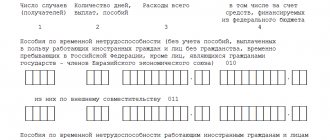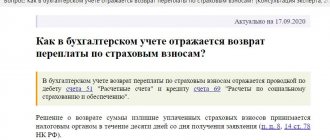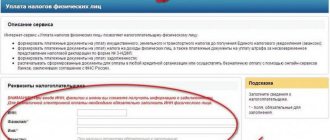Legal encyclopedia of MIP online - » Tax law » Payment of taxes and fees » Fulfillment of the obligation to pay taxes and fees (penalties, fines) upon liquidation of an organization
Get an expert’s opinion on the payment of taxes and fees (penalties, fines) upon liquidation of an organization in two clicks
The reasons for the liquidation of a company can be very diverse.
The order of repayment of tax and other obligatory payments
In order to establish the procedure for satisfying tax payments during the voluntary liquidation of legal entities, it is necessary to collectively analyze the norms of the Tax Code of the Russian Federation, the Civil Code of the Russian Federation, and the Federal Law of October 26, 2002 No. 127-FZ “On Insolvency (Bankruptcy)” (hereinafter referred to as the Bankruptcy Law) .
In accordance with paragraph 3 of Art. 49 of the Tax Code of the Russian Federation, the order of execution by a liquidated organization of obligations to pay taxes and fees among settlements with other creditors of such an organization is determined by the civil legislation of the Russian Federation, that is, the Tax Code of the Russian Federation refers to Art. 64 Civil Code of the Russian Federation [1].
From the analysis of the norms of Art. 64 of the Civil Code of the Russian Federation it follows that all payments, including mandatory ones, are divided into regular payments and current expenses. The latter refers to the expenses necessary to carry out the liquidation. According to paragraphs 1 and 2 of Art. 5 of the Bankruptcy Law, current payments are considered to be those that arose after the date of acceptance of the application for declaring the debtor bankrupt and are not subject to inclusion in the register of creditors' claims. In relation to voluntary liquidation, current expenses include those that arose after the preparation of the interim liquidation balance sheet and, accordingly, were not included in the interim liquidation balance sheet. Current tax payments may arise, for example, based on the results of an audit, which the tax authorities have the right to order on the basis of clause 11 of Art. 89 of the Tax Code of the Russian Federation, or as a result of the sale of property to pay off obligations to creditors in pursuance of clause 4 of Art. 63 Civil Code of the Russian Federation.
According to paragraph 1 of Art. 64 of the Civil Code of the Russian Federation, current expenses have priority over regular payments. Within current expenses, current tax payments are paid in the order prescribed by the Bankruptcy Law, that is, in the last, fourth place. In this case, since Art. 64 of the Civil Code of the Russian Federation does not establish the order of repayment of current expenses; an analogy of the law is applied (clause 1 of Article 6 of the Civil Code of the Russian Federation) based on the norms of Art. 134 of the Bankruptcy Law. The admissibility of such practice with reference to clauses 24, 25 of the Resolution of the Plenum of the Supreme Arbitration Court of the Russian Federation No. 6, the Plenum of the Supreme Arbitration Court of the Russian Federation No. 8 of 07/01/1996 “On some issues related to the application of part one of the Civil Code of the Russian Federation”, in particular, is indicated in the Resolution of the FAS UO dated September 30, 2010 No. Ф09-7990/10-С4.
Regular payments are the claims of creditors that are included in the interim liquidation balance sheet. Debt on regular obligatory payments to the budget and to extra-budgetary funds by virtue of clause 1 of Art. 64 of the Civil Code of the Russian Federation is repaid in the third place.
So, the next mandatory payments are repaid in third place among the next payments. Current expenses are paid in priority order in relation to all regular payments. Within the group of current expenses, mandatory current payments are repaid in fourth place.
Priority for satisfying creditors' claims upon liquidation of an organization
The priority in which creditors' claims are satisfied is established by civil law. In addition, the existence of priority is indicated by Articles 46, 60, 76, 114, 134 of the Tax Code of the Russian Federation, as well as bankruptcy legislation.
First of all, the claims of individuals to whom the company is liable for damage caused to life or health, as well as moral damage, must be satisfied.
Secondly, arrears of wages and other payments due to employees are repaid.
The third stage is reserved for settlements with the budget, as well as extra-budgetary funds.
In the fourth stage there are other creditors.
Procedure for writing off taxes upon liquidation
According to paragraphs. 4 p. 3 art. 44 of the Tax Code of the Russian Federation, the obligation to pay taxes and fines ceases with the liquidation of the taxpayer organization after the liquidation commission has carried out all settlements with the budget in accordance with Art. 49 of the Tax Code of the Russian Federation. Moreover, the fact that all actions during liquidation are carried out by the liquidator does not matter. If the liquidated organization has turnover due to the actions of the liquidator, all taxes on these turnover will have to be paid, otherwise liquidation would be a very convenient way to evade taxes. This, in particular, is stated in the Letter of the Ministry of Finance of Russia dated November 29, 2011 No. 03-02-07/1-410, indicating that the Tax Code of the Russian Federation does not provide for the termination of the obligation of a taxpayer-organization to pay taxes (penalties, fines) in the period of its being in the liquidation stage.
Based on paragraph 1 of Art. 49 of the Tax Code of the Russian Federation, the obligation to pay taxes and fees (penalties, fines) of a liquidated organization is fulfilled by the liquidation commission at the expense of the said organization’s funds, including those received from the sale of its property.
If the funds of the liquidated organization are not enough to fulfill the obligation to pay taxes and fees, penalties and fines due, then the remaining debt must be repaid by the founders (participants) of the said organization within the limits and in the manner established by the legislation of the Russian Federation (Clause 2 of Article 49 of the Tax Code RF). This is possible only if, in accordance with civil law, the founders (participants) of a liquidated legal entity bear subsidiary liability for its debts (clause 15 of the Resolution of the Plenum of the Supreme Arbitration Court of the Russian Federation No. 41, Plenum of the Supreme Arbitration Court of the Russian Federation No. 9 of 06/11/1999 “On some issues related to the entry into force of part one of the Tax Code of the Russian Federation"). Since we are talking about commercial organizations whose liability is limited to contributions to the authorized capital, then in the worst case, without being violators of the law, participants in the liquidated organization may lose their contributions to the authorized capital, but will not have to pay them out of their own pockets. This is indicated by the relevant norms of civil legislation: clause 2 of Art. 56 Civil Code of the Russian Federation, clause 3, art. 3 of the Law on LLC [2], paragraph 3 of Art. 3 of the Law on JSC [3].
How are the tax obligations of a liquidated organization paid off if there are not enough funds to do so? In this case, the organization is liquidated not voluntarily, but according to the simplified bankruptcy procedure described in Chapter. 11 of the Bankruptcy Law. Further, arrears on taxes (penalties, fines) are recognized by the tax authority as hopeless for collection due to the insufficiency of the organization’s property on the basis of Art. 59 of the Tax Code of the Russian Federation and is written off in accordance with the established procedure [4].
The procedure for offset and refund of excessively collected taxes, fees, penalties and fines
The regulation of relations in the event of an overpayment of taxes and fees from a liquidated organization is prescribed in paragraph 4 of Article 49, 78-79 of the Tax Code of the Russian Federation. According to its provisions, the overpayment is offset against existing tax obligations, as well as arrears of penalties and fines.
The remaining amount of overpayment after tax offset is returned to the company within one month after submitting the relevant application.
When a tax refund is issued, interest is calculated starting from the day following the day of collection and continues to accrue until the day the settlement is actually made.
Author of the article
Invalidity of the liquidation balance sheet
According to the legal position set out in Resolution of the Presidium of the Supreme Arbitration Court of the Russian Federation dated October 13, 2011 No. 7075/11, the presentation of a liquidation balance sheet that does not reflect the actual property status of the liquidated legal entity and its settlements with creditors must be qualified as failure to submit to the registration authority a document containing the necessary information.
FAS VSO, in Resolution No. A33-18667/2010 dated 05.08.2011, considered the following case. The company decided to voluntarily liquidate; during the audit, the tax service assessed additional fines and invited the company to pay them. However, the company did not pay off the fines, approved the liquidation balance sheet and submitted a package of documents to the registration authority (tax service) for state registration of liquidation. The Tax Service refused to register the liquidation due to the unreliability of the liquidation balance sheet. Let us recall that the application for state registration of a legal entity in connection with its liquidation in form P16001 [5] contains a special entry confirmed by the signature of the liquidator: “Settlements with creditors have been completed.” The company filed a lawsuit against the illegal actions of the tax service as a registrar. The court supported the position of the tax authorities on the following grounds:
- the requirements were sent to the taxpayer after the commencement of the voluntary liquidation procedure of this legal entity and the approval of the liquidator;
- at the time of drawing up the interim liquidation balance sheet, the company was notified that the tax authority had discovered facts indicating tax violations;
- no evidence has been submitted by the company to the tax authority;
- the company did not provide evidence of fulfillment of the obligation to pay the fine before drawing up the liquidation balance sheet, that is, the debt existed at the time of approval of the interim liquidation balance sheet. [6]
Unsubmitted claims will not be subject to payment.
In accordance with clause 5.1 of Art. 64 of the Civil Code of the Russian Federation, claims not recognized by the liquidation commission are considered extinguished upon liquidation of a legal entity, if creditors for such claims did not file claims in court.
In the Ruling of the Supreme Arbitration Court of the Russian Federation dated May 12, 2009 No. VAS-5652/09, the court came to the conclusion that failure by the tax authority as a creditor to comply with the procedure established by law for filing claims upon liquidation of an organization entails consequences established by tax legislation, including in the form of repayment of the creditor’s claims.
Similarly, in the Resolution of the Federal Antimonopoly Service of March 29, 2011 No. A55-17287/2010, the court refused to satisfy the requirements of the Federal Tax Service, since the inspection did not make demands on the liquidation commission, and therefore the latter had no grounds for including any items in the interim liquidation balance sheet and liquidation balance sheet. or amounts of debt and for their payment to the tax authority.
Stage 7
Drawing up the final liquidation balance sheet
It is accepted when debts to creditors and the budget are repaid, employees are fired, and a referral to the Pension Fund is sent.
The document lists the assets that remain after paying wages, severance pay, debts, taxes, contributions, fines and penalties. The data is approved at the meeting of the founders. The balance of funds and property is distributed among the founders in accordance with their shares.
Tax claims not recognized by the liquidator are collected in court
In the Resolution of the Federal Antimonopoly Service No. A23-1737/08A-14-83 dated January 28, 2009, the court indicated that the tax service cannot require the inclusion of its stated requirements if the liquidation commission does not agree with them. In this case, the tax service, along with other creditors, must act in the manner established by clause 4 of Art. 64 Civil Code of the Russian Federation. This rule of law directly provides for a way to protect the interests of a creditor who has been denied satisfaction of his claim (filing a claim in court), as well as a way to satisfy his claims if they are justified (at the expense of the remaining property of the liquidated legal entity).[7]
Stage 1
Making a decision on liquidation
The closure of a legal entity must be discussed at an extraordinary meeting of the founders. If the decision is made unanimously, it is recorded. If there is only one member of the company, the decision is personal.
A liquidation commission is formed from among those present. It may include one person (liquidator) or a group represented by an accountant, lawyer, director, founders or third parties. Once the group has been identified, its leader is chosen. Next, he will act as the Applicant.
Tax audit is not an obstacle to liquidation
What to do if the tax audit has not been completed, but the time for drawing up the liquidation balance sheet has already approached? Should the liquidated organization wait for the results of the audit, or can liquidation be completed without regard to the fact of the audit?
According to Letter of the Federal Tax Service of Russia dated 08/07/2012 No. SA-4-7/13101, if an organization duly notified the tax authority about the start of the liquidation procedure, and the tax authority did not make any demands for the payment of taxes and fees, then the organization can continue the liquidation procedure on a universal basis. In particular, in accordance with paragraph 6 of Art. 63 of the Civil Code of the Russian Federation, after completing settlements with creditors, the liquidation commission draws up a liquidation balance sheet, which is approved by the founders (participants) of the legal entity.
VAS analyzed the following situation. The tax service drew up an act; at the time of submitting the documents for liquidation, it did not declare any requirements, however, already acting as a registrar, it refused to liquidate. The court considered these actions to be contrary to the law and substantiated its opinion as follows: at the time the applicant applied to the registering authority with an application according to the registration authority’s certificate, the company had no debt on mandatory payments, and the on-site tax audit report does not indicate additional amounts of mandatory payments were accrued to the applicant... The inspector’s argument about the debt the company had at the time of its application was rightfully declared insolvent, since the inspection of the company’s compliance with tax legislation was carried out by the inspectorate during the period of liquidation procedures and before the liquidator submitted an application to register the liquidation of the company, it had the right to send him a corresponding demand
(Determination of the Supreme Arbitration Court of the Russian Federation dated March 16, 2009 No. 2832/09).
Is it possible to indisputably collect mandatory payments from a liquidated organization?
Does the tax authority have the right to collect debts from a liquidated organization indisputably, and if not, then at what point in the liquidation procedure is it deprived of this right?
In the Ruling of the Supreme Arbitration Court of the Russian Federation dated 06/09/2014 No. VAS-6279/14, the court assessed the bank’s actions regarding direct debit of funds as contrary to the provisions of Art. 64 of the Civil Code of the Russian Federation on the procedure and priority for satisfying the claims of creditors of a liquidated legal entity, which entails the nullity of the corresponding transactions. But this is about banks - what about tax authorities? For example, in the FAS VSO Resolution No. A19-1757/2013 of September 26, 2013, the court considered that while the taxpayer is in the process of liquidation, the tax authority does not have the right to forcefully collect taxes, penalties and fines in the manner established by the provisions of Art. 46, 47 Tax Code of the Russian Federation.
The Ministry of Finance has also repeatedly spoken out on this issue. In Letter dated July 29, 2008 No. 03‑02‑07/1-319, the Ministry of Finance notes ,
that from the date of approval of the interim liquidation balance sheet, the tax authority does not have the right to collect taxes, fees, relevant penalties and fines in the manner prescribed by Art. 46 of the Tax Code of the Russian Federation, as evidenced by the practice of arbitration courts (resolutions of the Federal Antimonopoly Service of the North-West District dated November 25, 2004 No. A05-6517/04-13, FAS PO dated February 27, 2007 No. A55-7518/06, dated December 18, 2007 No. A55-6435/ 2007).
At the same time, the Ministry of Finance noted that the Tax Code of the Russian Federation does not provide for the obligation of tax authorities to revoke collection orders and cancel the decision to suspend transactions on the taxpayer’s accounts in the event of a decision to liquidate it.
In a later letter - dated August 24, 2011 No. 03-02-07/1-303 - in response to a request from the bank servicing the liquidated organization, the Ministry of Finance explained that if there are documents on the legal entity’s decision on voluntary liquidation and (or) When the liquidation commission approves the interim liquidation balance sheet, the bank cannot comply with the decisions of the tax authorities on the collection of taxes.
Taking into account the clarified position of the Ministry of Finance, as well as judicial practice, it can be argued that the period is calculated from the moment the decision on liquidation is made, and not from the moment the interim liquidation balance sheet is approved. The aforementioned Resolution of the FAS SZO No. A05-6517/04-13, which, by the way, was referred to by the Ministry of Finance in Letter No. 03‑02‑07/1-319, states directly: the issuance of a contested decision by the Tax Inspectorate on the collection of taxes and penalties from funds institutions in bank accounts and issuing collection orders to the bank on the basis of this decision after the decision to liquidate the institution should be considered unlawful
.
Since liquidation actions are subject to state registration, the period, accordingly, is calculated not from the moment of the action, but from the moment of its registration. This, in particular, is indicated in the Resolution of the Federal Antimonopoly Service of the North-West District dated 01.10.2012 No. A26-11436/2011: during the period the Company is in the stage of liquidation (that is, after making a decision on liquidation and making a corresponding entry in the Unified State Register of Legal Entities), the Inspectorate, by virtue of Art. 49 of the Tax Code of the Russian Federation and 64 of the Civil Code of the Russian Federation there was no right to indisputably collect taxes and penalties, since this would entail a violation of the order and priority of satisfying the claims of other creditors of the taxpayer... the special procedure for fulfilling the obligation to pay taxes and fees (fines, penalties) upon liquidation of an organization does not depend on the date drawing up a liquidation balance sheet. To apply this procedure, as the courts correctly indicated, it is sufficient to have a decision to liquidate the organization and make a corresponding entry in the Unified State Register of Legal Entities
.[8]
These rules also apply to mandatory contributions to social funds. Thus, the FAS Resolution VSO dated August 15, 2013 No. A19-917/2013 states that based on the fact that this issue is not regulated by Law No. 212-FZ [9], the general rules of law contained in the Civil Code of the Russian Federation are subject to application. That is, while the insured organization is in the process of liquidation, the fund does not have the right to carry out actions to indisputably collect insurance premiums, penalties and fines, since such actions entail a violation of the order and priority of satisfying the claims of other creditors of the taxpayer (Resolution of the Federal Antimonopoly Service VSO dated March 14, 2013 No. A19-14698/2012). A similar approach was expressed by the court in the Resolution of the FAS UO dated March 21, 2012 No. A76-12541/2011.
Grounds for forced liquidation of an organization
A company can be liquidated voluntarily or forcibly. The decision to voluntarily liquidate a company is made by its founders. The reasons for making such a decision may be different, ranging from reluctance to continue further business activities, ending with the achievement of the goals of creating the company or the period for which it was created.
Only a court can decide to forcefully liquidate a company. To make such a decision, the following grounds must be present:
- gross violation of the law when creating a company, if it is impossible to eliminate such a violation;
- the company's carrying out activities that are prohibited by law, as well as other repeated and gross violations of the law;
- the company conducting business activities without obtaining permits (licenses) prescribed by law or failing to obtain membership in an SRO, if such an obligation is established by law;
- regular implementation of activities by a public organization, charitable or religious organization that goes against the objectives provided for by the charter of such an organization.
This list is final. Other cases not prohibited by law are also possible. Liquidation may also result from the bankruptcy of companies.
Are interim measures legal?
In accordance with paragraph 1 of Art. 76 of the Tax Code of the Russian Federation, the tax authority has the right, in order to ensure the execution of a decision to collect a tax, fee, penalty and (or) fine, to suspend transactions on taxpayers’ bank accounts. Is voluntary liquidation a defense to this interim measure? At first glance, yes: since the current tax and civil legislation does not provide for the possibility of indisputably writing off funds from the taxpayer’s account during the period of liquidation without complying with the conditions established by Art. 49 Tax Code of the Russian Federation, art. 64 of the Civil Code of the Russian Federation, then ensuring the fulfillment of the obligation to pay tax in the form of suspension of transactions on accounts during the period of liquidation of the taxpayer is contrary to tax and civil legislation (resolution of the Eighteenth Arbitration Court of Appeal dated August 23, 2012 No. 18AP-8114/2012[10], FAS PO dated 07/31/2012 No. A57-23213/2011, dated 02/02/2011 No. A65-7933/2010, dated 12/21/2010 No. A65-5800/2010 and No. A65-5799/2010).
However, in the decisions of the AS ZSO dated August 13, 2014 No. A67-6056/2013, No. A67-6065/2013, No. A67-6062/2013, the court found otherwise. His position was based on the fact that the suspension of transactions on the account does not apply to payments, the order of execution of which, in accordance with the civil legislation of the Russian Federation, precedes the fulfillment of the obligation to pay taxes and fees (Article 76 of the Tax Code of the Russian Federation). Moreover, the court clarified that even while a legal entity is in bankruptcy proceedings, which, like voluntary liquidation, is one of the types of liquidation of a legal entity, entailing its termination without the transfer of rights and obligations by way of succession to other persons (Article 61 Civil Code of the Russian Federation), the tax authority is allowed to exercise the rights provided for in Art. 76 Tax Code of the Russian Federation
.
What can be advised to liquidated organizations if operations on their current account are suspended? In order to avoid any obstacles to expenses related to the continued functioning of the organization and the work of the liquidation commission, it is recommended to make a special note regarding current expenses. Indication in the payment order “current payment (expense)” will allow the bank to carry out operations out of turn on the basis of Art. 64 Civil Code of the Russian Federation. At least, this is what the court advised to do in the previously mentioned Resolution of the FAS UO No. F09-7990/10-S4.
Stage 2
Notification to the tax authority
When the decision to terminate activities is in hand, you need to fill out form No. P15001 and have it certified by a notary. Next, the documents are sent to the Federal Tax Service, and within 5 working days the tax authority undertakes to issue a Unified State Register of Legal Entities entry sheet with a note that the liquidation of the legal entity has been started.
The deadline for submitting documents is 3 days from the moment of signing the decision (protocol) on liquidation. (Clause 1, Article 62 of the Civil Code of the Russian Federation). Otherwise, the company will receive a fine for late provision of documents.








